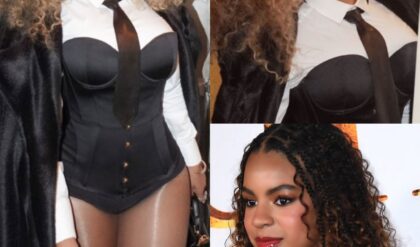
Star Wars creator George Lucas has shut down critics of the franchise from a galaxy far, far away. Once and for all, the man behind the Skywalker Saga, Indiana Jones, and Willow is telling people that the intention behind his series was always that “all people are equal.”
 Credit: Lucasfilm
Credit: Lucasfilm
George Lucas famously created the Star Wars franchise after plans to adapt the Buck Rogers science fiction serial to film fell through. Although the series may have been his second choice, it turned out pretty well for him.
Star Wars is one of the most commercially successful film series of all time and has developed into a multimedia franchise that now includes animated and live-action TV and streaming series, an entire expanded universe (officially now called Legends), dozens of spinoff novels and comic books, and literally billions of pieces of licensed merchandise.
The series made stars of actors Mark Hamill, Harrison Ford, and the late Carrie Fisher and introduced pop culture staples like Darth Vader (voiced by James Earl Jones and physically portrayed by numerous different actors over the decades) and Yoda (Frank Oz).
Star Wars fans are currently celebrating the 25th anniversary of Episode I – The Phantom Menace (1999), which just goes to show that even the most lambasted entries in the series are eventually embraced by culture as a whole.

But virtually since the premiere of A New Hope (then simply titled Star Wars) in 1977, George Lucas has been criticized by all sides of the political spectrum. In particular, the original trilogy has been widely examined for its cast of predominantly white males and accusations that it minimized the role of women in its narrative.
Check out famed astronomer and scientist Carl Sagan criticizing the cast of the original film for being almost exclusively white men:
Famed astrophysicist Carl Sagan talked about seeing STAR WARS in 1977, and said it was “too white.” pic.twitter.com/ccLBD8jza3
— All The Right Movies (@ATRightMovies) November 24, 2022
Over the decades, the criticism of Star Wars on racial and gender-based grounds has not gotten any quieter. The reactions to sequel trilogy stars like John Boyega, Kelly Marie Tran, and Daisy Ridley certainly have not helped anything, but, at this point, the franchise seems to get slammed no matter what it tries.
 Credit: Lucasfilm
Credit: Lucasfilm
Now, George Lucas himself is settling some things. The filmmaker, who sold Lucasfilm to The Walt Disney Company in 2012 for $4 billion, spoke at the Cannes Film Festival (per Variety), where he is receiving an honorary Palme d’Or and dismissed numerous criticisms of the franchise.
The founder of Lucasfilm Animation and Industrial Light & Magic dismissed the notion that Star Wars portrayed only white males as heroes, asserting that all the characters were de facto aliens and that his intention was to portray an equal society. He said:
“They would say, ‘It’s all white men.’ Most of the people are aliens! The idea is you’re supposed to accept people for what they are, whether they’re big and furry or whether they’re green or whatever. The idea is all people are equal.”
“In the first one, there were a few Tunisians who were dark, and in the second one I had Billy Williams, and the [prequels], which they were also criticizing, I had Sam Jackson. He wasn’t a scoundrel like Lando. He was one of the top Jedi.”
Notably, George Lucas feels the exception to this galactic equality is in the treatment of droids like C-3PO (Anthony Daniels) and R2-D2 (Kenny Baker), explaining, “That was a way of saying, you know, people are always discriminating against something and sooner or later, that’s what’s going to happen. I mean, we’re already starting with AI, saying, ‘Well, we can’t trust those robots.’”

This is a topic that Disney has actually begun to address in Disney+ series like The Mandalorian, which dedicated a third-season episode to the concept of droid discrimination. But that was not all George Lucas had to say at Cannes.
Lucas went on record to heavily imply that Disney had lost its way with Star Wars, saying, “I was the one who really knew what Star Wars was … who actually knew this world because there’s a lot to it. The Force, for example, nobody understood the Force. When they started other ones after I sold the company, a lot of the ideas that were in [the original] sort of got lost.”
The THX 1138 (1971) and American Graffiti (1973) director completely rejected criticism of women as passive in his movies, saying:
“Who do you think the heroes are in these stories? What do you think Princess Leia (Carrie Fisher) was? She’s the head of the rebellion. She’s the one that’s taking this young kid who doesn’t know anything and this boisterous, I-know-everything guy who can’t do anything and trying to save the rebellion with these clowns … And it’s the same thing with Queen Amidala (Natalie Portman).”
 Credit: Lucasfilm
Credit: Lucasfilm
“You can’t just put a woman in pants and expect her to be a hero. They can wear dresses, they can wear whatever they want. It’s their brains and their ability to think and plan and be logistical. That’s what the hero is.”
Perhaps one of the lasting legacies of the Star Wars franchise is that it often seems to infuriate people of every political stripe, who always seem to find the cultural elements that make them angry somewhere in a fairy tale set in space. But, it turns out, if you ask George Lucas directly, he’ll tell you exactly what he was trying to say.





